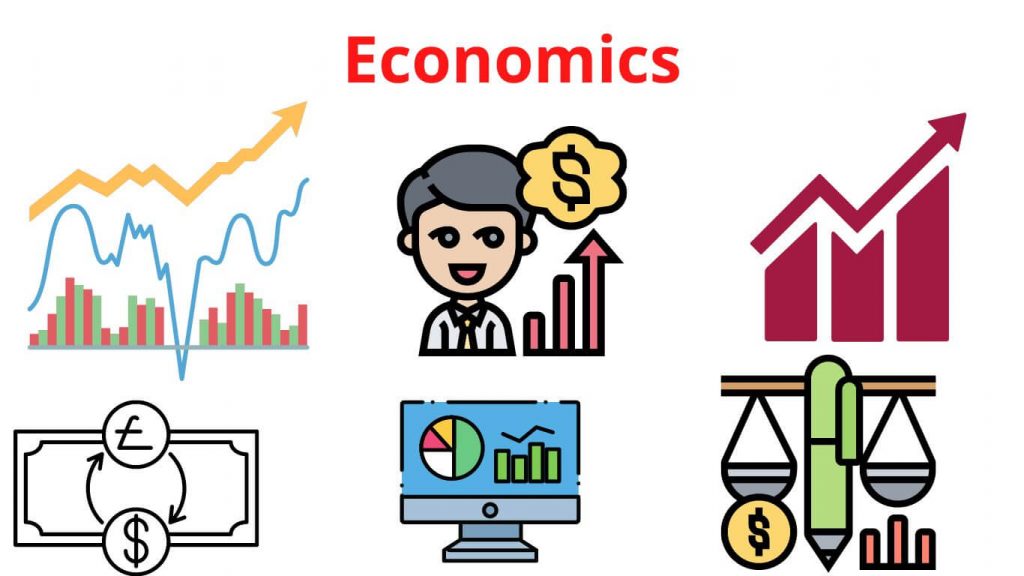
ROLE OF ECONOMICS IN BUSINESS MANAGEMENT
Managerial economics is a specialized branch of economics that enables managers to conquer complex economic boundaries. This article focuses on how and why economics is an integral part of management curricula around the world. It discusses some real-life examples of how businesses have benefited from the knowledge and expertise of business professionals with a deep understanding of economics in the recent past. The article also details several of the latest concepts in economics, the application of which provides a number of solutions in business decision-making in today’s world.
Economics in action
Tech companies like Google, Amazon, Microsoft, Airbnb, Facebook and Uber have large teams of economists. According to Athey and Lucy (2019) in Harvard Business Review, the technology sector is becoming a leader in this practice because there is enough data available and experimentation is possible. Over the decades, the field of economics has developed a set of tools for analyzing empirical relationships using techniques to understand the nature of the interrelationships between variables. Some very simple business questions might be: “Does Uber Express Pool expand Uber’s entire user base, or is it simply pulling users from other Uber products?” or “Should eBay advertise on Google, or is it just siphoning off people who would pass anyway?” organic search?” [Athey and Luca (2019)] Answering these questions involves examining causal relationships that complement intuition with data. Such economic analyzes have a significant impact on the companies concerned, for example, an analysis of eBay ads showed that ineffective advertising on Google was simply a waste of millions of dollars.
Economics also focuses on the design of markets and incentives, and this has found new application in the digital economy. For example, economic research has looked at the role of consumer search in shaping auction design for digital advertising. At Microsoft, Susan Athey used these ideas to improve the quality of Bing ads. The article also mentions, “When Michael Ostrovsky and Michael Schwartz noticed that the reserve prices of Yahoo! are lower than theory would suggest is most profitable, they conducted an experiment to adjust reserve prices – and helped the company increase profits by millions of dollars”. The National Association of Business Economists held a conference that highlighted the practical relevance of business economics work in technology companies and companies that are now bringing economic thinking to their decisions.
The role of economics in business decisions
Business decisions are often made under uncertainty and this is where prediction and forecasting come into play. The theory of business economics coupled with quantitative techniques specific to economic data (called econometrics) provide valuable insights into the decisions that need to be made by making accurate forecasts of key business variables such as demand, price, sales, labor, inventory, etc. It shows , based on an objective analysis of what the optimal strategy might be given the goals and constraints facing management.
The role of economics in business can therefore be divided into three functions. First, a manager who is exposed to the economy can identify the various problems that hinder the growth of the organization, explain why this happens, and analyze the possible effects in the short and long term on the functioning of the organization. He is able to propose an alternative plan of action that is rational and feasible.
Second, business economics based on quantitative analysis can provide an objective basis for decision/policy making and forward planning.
Third, armed with expertise in quantitative techniques along with knowledge of economic theory, managers with a thorough knowledge of economics develop an acumen for analysis. It helps to analyze various problems related to any other domain besides economic matters in business, be it sales promotion, volume of investment, nature and extent of competition and competitor analysis or financial situation, labor relations, government policy. It takes into account several factors that can affect the macro business environment and the impact on the industry/sector as well as the firm. Therefore, the contribution of business economics in decision-making can be summarized in the following functions:
Minimization of risk and uncertainty
Profit planning and control
Demand and sales forecast
Efficiency measurement
Analysis of the effects of government policies
The benefit of concepts in business economics
To understand how businesses work, we need to be aware of the various functions and processes. On the one hand, businesses have to serve customers and on the other hand, they have to take care of producing commodities/services in order to remain profitable. In this whole process, reaching out to customers is one of the most important parts related to sales and marketing. Ensuring the production process at an affordable cost to make the business profitable is the role of operations management. Managing people operations is another important aspect and here comes the role of human resource management. Throughout this process, the mobilization of finance to ensure these activities and the appropriate use of resources is related to the area of finance. So where are the economics in this process? Where does it fit? Why should a manager study economics at all?
Data science and machine learning:
These days, the need for artificial intelligence and machine learning is rising quickly, and so is the
specialisation of this subject all over the world. Programming language, neural networks, human
intelligence, and other topics will be more heavily studied in this specialisation in data science and
machine learning. After completing this, you will have a tonne of employment options, including those
for data analysts, research scientists, AI engineers, machine learning engineers, data miners, etc.
IoT – IoT (Internet of Things) is concerned with the things or devices that can be managed through the
internet from your mobile device over a wifi connection, be it your appliance, televisions, AC, etc. This
field is expanding quickly due to advancing technology. We have a tonne of opportunities thanks to the
Internet of Things for the future, including the following:
- Data scientis
- Network Engineer
- Information security engineers
- Embedded program engineers
- Hardware engineer
Due to the advent of IoT, engineering today has various advantages in a variety of industries to work in,
including software development and electrical and electronic products.
Consider the phrase “remain profitable.” Let’s start by understanding the role economics play in making business decisions. How do they stay profitable? The theory of the firm in economics provides a concrete answer to this by incorporating the state of technology and the costs of additional production inputs – leading one to understand how businesses can minimize costs. Not only that, corporate economics theories also shed light on how various pricing mechanisms are used by businesses to maintain their profits by understanding their consumers. It sounds strange? Let me elaborate. You go to a theme park and you see that there are different entry options, for example you can pay an entry fee and then you choose the rides when you enter and pay separately. You can also pay for 6 rides along with the entry fee before entering. Have you ever wondered why there are two schemes to choose from? The second one for the driving enthusiasts while the first one is for the not so driving enthusiasts! The park authorities do not know what type of customer you are, hence the two systems. If they charged the same price to both types, they would end up with lower profits! This is just a pricing mechanism – charge different prices – increase profits and corporate economics theory can tell you which customer the theme park should charge more!
Consider another case. Mr. Dixit wondered how he was losing revenue despite being the only cinema hall in the city with no others in the neighborhood. He considered raising the price of tickets. However, a manager with an MBA in economics has a very good understanding of the nature of demand and consumer preferences and, depending on his analysis, can advise whether it would be reasonable to increase the price or not.
Business application of selected concepts
Auction
In economics, auction theory has enormous real-life applications. In addition to designing complex auctions in industries such as airlines, telecommunications, etc., economists have played a central role in the popularity and success of auctions. For example, most of Google’s revenue is generated by an auction-based system that sells ads; the system was developed by two engineers and verified by its chief economist, Hal Varian. Priceline, an online travel booking platform, has introduced an economic concept called “conditional price offer” to make it mandatory for travelers to pay the prices they offer if airlines and hoteliers on the Priceline portal accept the offer. It was developed by company founder Jay Walker, who studied economics at university level. Thus, consumers (passengers) thought more seriously before offering a price, rather than just naming a price with no commitment to purchase [Litan (2014)].
Optimization
Economics uses tools related to optimization in a variety of contexts. According to Litan (2014), companies in the transport and communications sector often face complex optimization problems. Mathematicians and economists are able to solve these problems using both linear and non-linear programming methods. As a result, businesses and consumers benefit greatly from lower costs and prices.
Pairing theory
Matching theory or market design is a relatively new kind of literature in economics. Alvin Roth used this to design a national program for physician allocation and kidney donor exchanges [Litan (2014)]. On the online dating platform cupid.com, their economist has limited the number of date requests women can receive from men per month. This has made men much more serious and selective, and the likelihood of a response is likely to improve.
Futuristic Plans
Not only technology companies as described above, but also companies in other sectors have realized the importance of having people with sufficient exposures in the economy. Banking and finance sector, NGOs, credit rating, healthcare and many other sectors such as energy, retail, insurance, stock markets that need critical thinking and analytical skills, MBAs with deep knowledge of economics offer them more executive roles . In addition, other potential employers include government enterprises, public sector organizations, investment firms, trade magazines and newspapers. A management graduate who studies economics in depth is suitable for a role as a pricing analyst, market research analyst, in a career in business forecasting, international business, management consulting, etc. Along with business analytics and digital marketing, international management or global management or international entrepreneurship is another an upcoming area of specialization that is mostly based on economics and strategy.

Related Posts

Exploring the Health Benefits of Green Coffee as a Superior Caffeine Alternative
Exploring the Health Benefits of Green Coffee as a Superior Caffeine Alternative Exploring the Health Benefits of Green Coffee as a Superior Caffeine Alternative Coffee

Unleashing the Power of Business Transformation Through Analysis of Big Data
Unleashing the Power of Business Transformation Through Analysis of Big Data In the beginning… In the fast shifting terrain of the modern corporate world, data
Crossing Boundaries: Exploring the Sudarshan Setu Bridge
Introduction In the picturesque coastal region of Gujarat, where the Arabian Sea meets the land, stands a remarkable structure that embodies the spirit of progress


